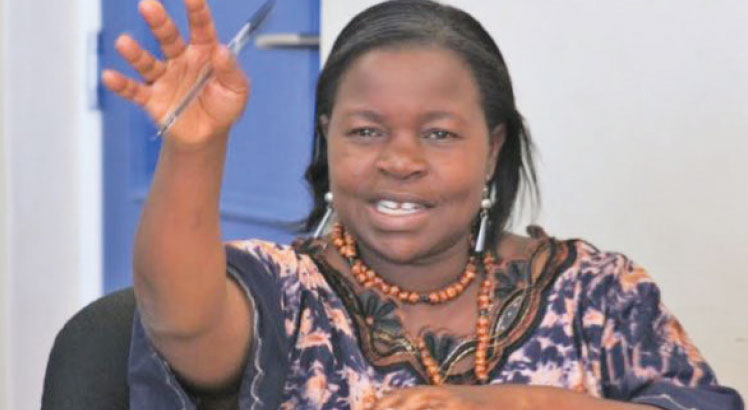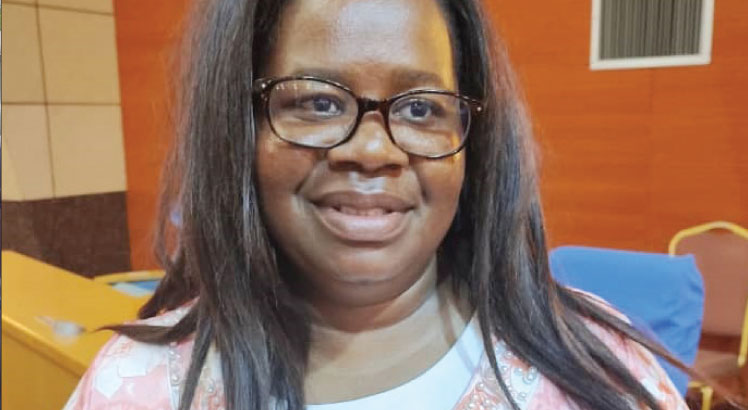T
he Anti-Corruption Bureau (ACB) says it has concluded investigations into the award of a $60 million (K105 billion) contract to Techno Brain to upgrade the country’s passport issuance system.
ACB senior public relations officer Egrita Ndala confirmed the development in a brief written response to Weekend Nation’s questionnaire on Wednesday.
She said: “The bureau has investigated corruption allegations against Techno Brain and officials at Immigration in the award of the contract to upgrade the passport issuance system. The bureau is in the process of determining the way forward on the matter.”
Ndala said ACB was yet to determine the way forward.
The contract to upgrade the passport issuance system, signed by the then ruling Democratic Progressive Party (DPP), also involved introduction of an electronic passport under the build, operate and transfer (BOT) model by providing 800 000 e-passports.
Confirmed the development: Ndala
The graft-busting body started probing the deal in 2016 soon after it was revealed that the supplier had delivered 250 blank passport booklets less.
The issue of the missing passports was first revealed in Parliament by former Mzimba West legislator Harry Mkandawire (People’s Party). He is now defence minister and vice-president of the Malawi Congress Party.
He told Parliament that a consignment of passports that the Department of Immigration received on December 9 2016 from Techno Brain, the supplier of the booklets, had a box of 250 blank passports with serial numbers MW853501 to MW853750 missing.
Mkandawire added that one of the missing passports, numbered MW853507, was found illegally issued to a Nigerian posing as a Malawian from Mangochi. He was later arrested in South Africa. He was using the name Vincent Banda and was en-route to UK.
In December 2021 Attorney General (AG) Thabo Chakaka-Nyirenda ordered the termination of the Techno Brain contract saying it was fraught with irregularities, one of which was that the supplier was asking for payment from Account Number One when it was already retaining proceeds from the production of passports.
Documentation which this paper saw at the time showed that the passport supplier was sourcing the booklets from Vienna, Austria where the average unit cost was $9.13 (K7 221.83) and from Singapore where the cost was around $1.73 (K1 368.43).
However, the supplier was then selling the same to the government at $76 (K60 166), including supply of 1 600 units of ink ribbons and 1 600 crystagrams, a series of holographic images, required for the printing of e-passport booklets.
Rough calculations showed Techno Brain was making a profit of between $66.87 (K52 894.17) and $74.27 (K58 708.02) per booklet supplied to government.
Malawians have been having difficulty obtaining passports since the beginning of this year, causing applicants to become desperate.
On February 23, 2024 President Lazarus Chakwera announced that there was a major breach in Malawi’s national security after hackers gained control of the country’s passport printing infrastructure, demanding an undetermined ransom.
He ordered the Department of Immigration to accelerate passport printing within three weeks while also adopting additional security measures for long-term protection. The three weeks expired early last week but the department is yet to resume issuing passports.
On the 250 missing passports, the graft-busting body says its preliminary investigations established that the matter was fraud or theft in nature and, therefore, outside its mandate under the Corrupt Practices Act (CPA).
Ndala said the bureau then referred the matter to Fiscal Police.
“Malawi Police Service is in a better position to provide more information on the matter,” she said.
National police spokesperson Peter Kalaya said police investigated the matter and arrested five suspects, namely Francis Chigwembere and Henry Chidakwa from the Department of Immigration and Citizenship Services, Joshua Wyzanyamahoro a Rwandan, Emmanuel Habumereni a Burundian and Nseji Fotaki a Congolese.
“They were charged with forgery, making a false document and theft. The case was referred to the Director of Public Prosecutions (DPP) for the prosecution of the case. Details about how the matter ended can be sought from there,” said Kalaya
The Ministry of Homeland Security is on record to have said that the foreign nationals were arrested after a team of investigators from Immigration, police and the ministry travelled to South Africa and other countries to investigate the issue. The ministry said the suspects were prosecuted and sentenced to jail terms ranging from four to six years.
The post ACB concludes passport probe first appeared on The Nation Online.
The post ACB concludes passport probe appeared first on The Nation Online.
 Moni Malawi
Moni Malawi 

